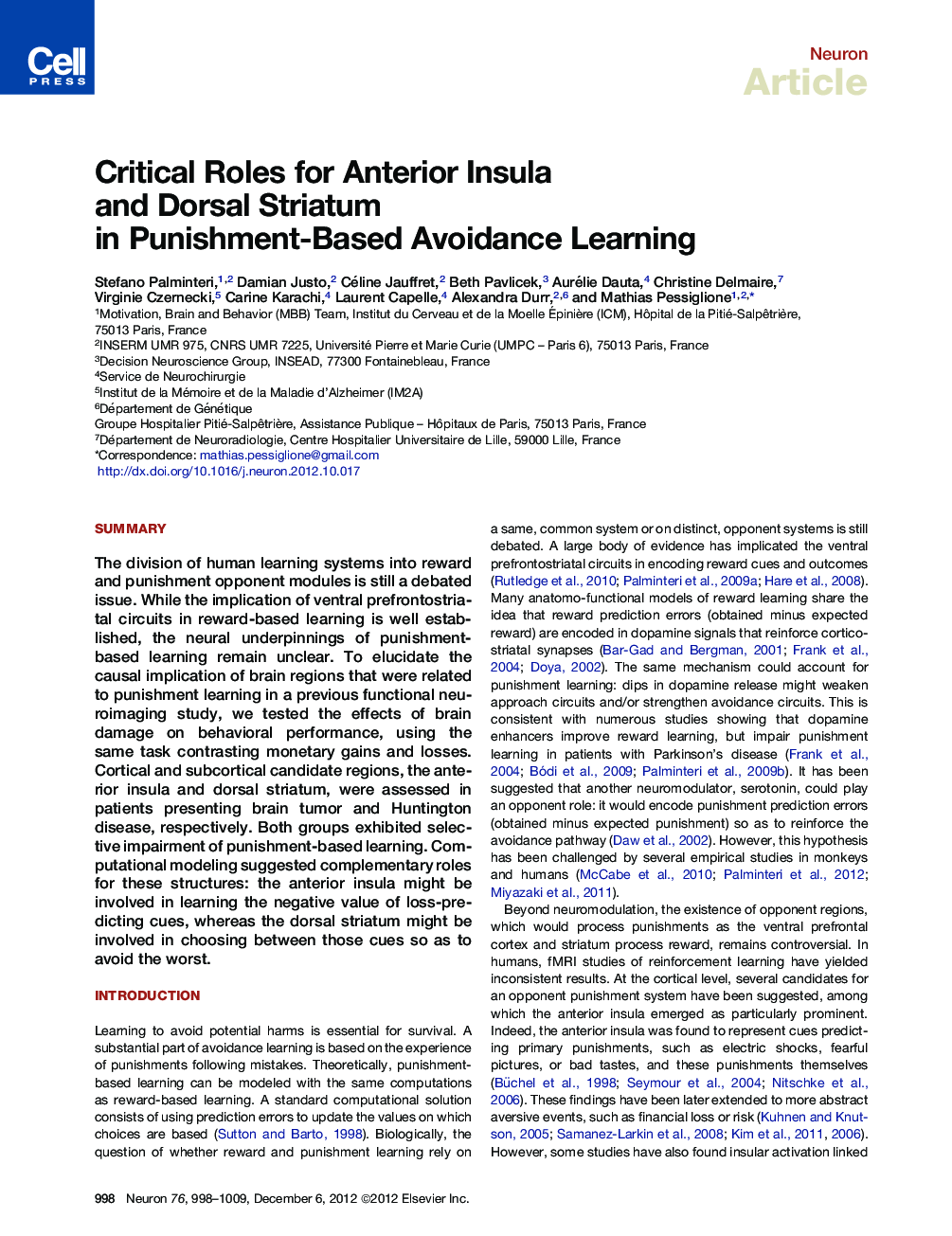| Article ID | Journal | Published Year | Pages | File Type |
|---|---|---|---|---|
| 4321597 | Neuron | 2012 | 12 Pages |
SummaryThe division of human learning systems into reward and punishment opponent modules is still a debated issue. While the implication of ventral prefrontostriatal circuits in reward-based learning is well established, the neural underpinnings of punishment-based learning remain unclear. To elucidate the causal implication of brain regions that were related to punishment learning in a previous functional neuroimaging study, we tested the effects of brain damage on behavioral performance, using the same task contrasting monetary gains and losses. Cortical and subcortical candidate regions, the anterior insula and dorsal striatum, were assessed in patients presenting brain tumor and Huntington disease, respectively. Both groups exhibited selective impairment of punishment-based learning. Computational modeling suggested complementary roles for these structures: the anterior insula might be involved in learning the negative value of loss-predicting cues, whereas the dorsal striatum might be involved in choosing between those cues so as to avoid the worst.
► Punishment learning is specifically impaired following damage to the insula ► Anterior insula is involved in learning the negative values of choice options ► Punishment learning is also impaired in presymptomatic Huntington disease ► Dorsal striatum is involved in choosing between options with negative values
